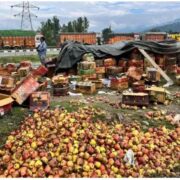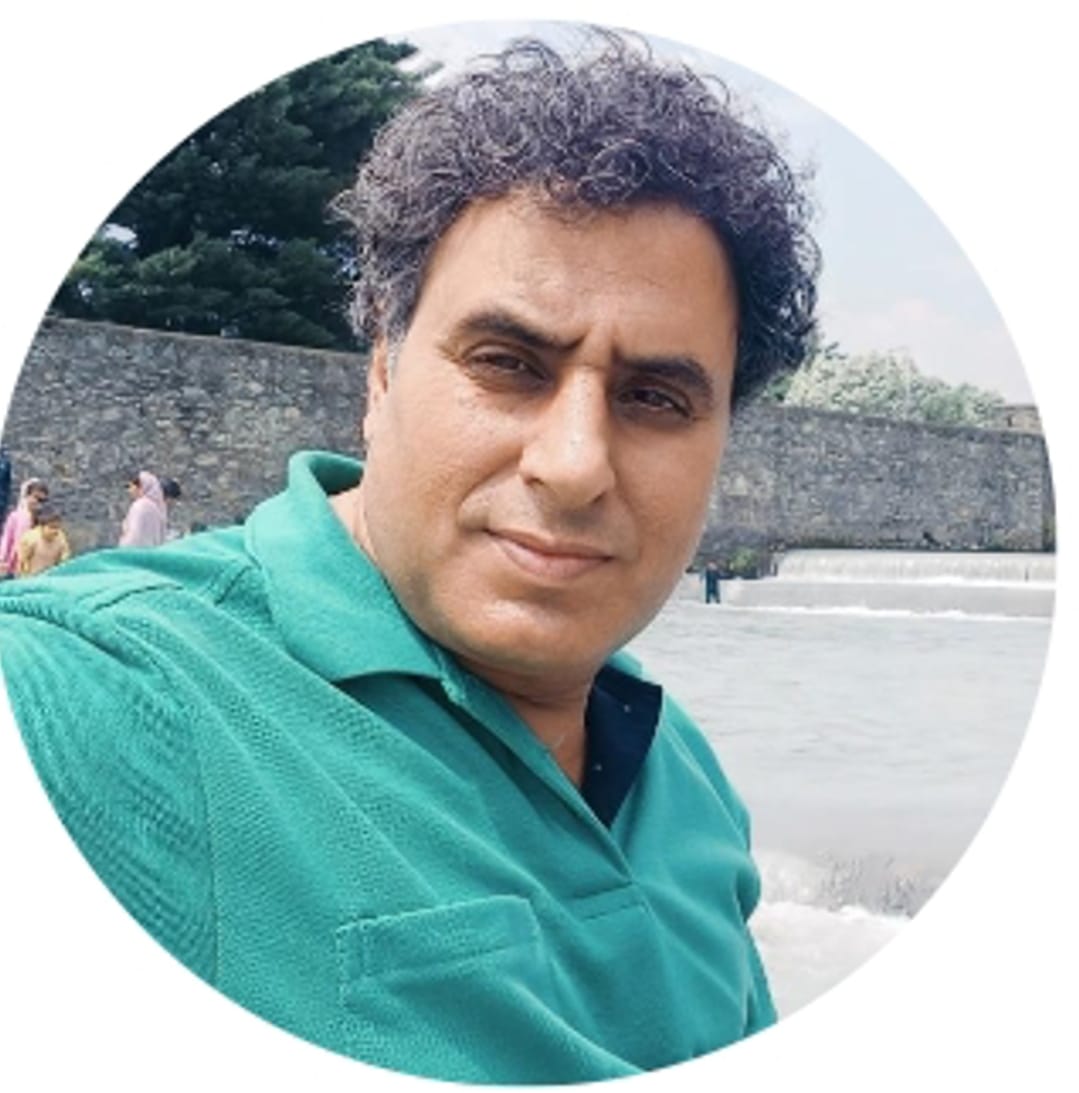For You, Abbu: My Tribute To The Man Who Made Me What I Am

Today marks the seventh anniversary of my father’s passing, a day that carries the weight of his absence and the enduring light of his legacy. His life was not one of grand gestures or public acclaim, but of quiet courage, unshakable resolve, and a love for his family that burned brighter than any hardship could dim. This is the story of a man who, with little formal education, taught us the power of knowledge; who, in a time of terror, stood as a shield for those in need; and who, until his final breath, believed in the boundless potential of his children.
The phone call came on May 9, 2018, slicing through the stillness of the evening. My brother’s voice, trembling from Delhi, carried a weight that stopped my heart. “You need to come,” he said. “The doctors… they’ve given up. They say there’s nothing more they can do for Abbu.” Each word landed like a blow, sinking deep into my chest. I stood frozen, the phone pressed to my ear, as the world blurred around me. My wife, sensing the gravity, looked at me with wide, questioning eyes. There was no time to explain, no time to process. I had to go.
We Missed The Flight, Went To Delhi By Road
We scrambled to book a flight, my fingers shaking as I entered the details. My wife, resolute, insisted on coming. “I’m not letting you go alone,” she said, her voice firm despite the tears in her eyes. I didn’t argue; I needed her strength. My cousin offered to drive us to the airport, and we threw together essentials, our minds racing. The clock was ticking, each second a betrayal of the man who’d raised me.
But fate was unkind. The roads were choked with traffic, a snarl of honking cars and exhaust fumes. My cousin gripped the steering wheel, cursing under his breath, as I stared at the dashboard clock, willing it to slow. We missed the flight. The realization was a punch to the gut, but there was no time to dwell. “We’ll drive,” I said, my voice steadier than I felt. My wife nodded, her hand squeezing mine. We decided to head for Delhi by road.
At Qazigund, my cousin drew the line. “I can’t go further,” he said, his face tight with guilt. We pleaded for him to take us to Jammu, but his commitments held him back. I didn’t blame him; life doesn’t pause for grief. So I slid into the driver’s seat, my wife beside me, and we pressed on through the night. The road stretched endlessly, a ribbon of asphalt lit by our headlights. Words felt inadequate against the weight of what awaited.
On His Deathbed, My Father Was Waiting For Me
In Jammu, we abandoned the car and booked seats on a bus to Delhi. The journey was a blur of exhaustion and dread, the hum of the engine lulling us into uneasy silence. We reached R&R Hospital on May 11, two days after that call. I rushed to my father’s side, my heart pounding as I entered the sterile, white room. He was there, a shadow of the man I knew—frail, his breathing shallow. He couldn’t speak, could barely move, but when his eyes met mine, a faint smile curved his lips. It was as if he’d been waiting, as if he believed his “superman” son could still save him.
I wanted to believe it too. I wanted to shake him, tell him to fight. But the truth was crueler. He was slipping away, and all I could do was hold his hand, my wife beside me, her presence an anchor in my grief.
Tomorrow, as we mark seven years without him, I carry his lessons: that courage is quiet, that love is sacrifice, and that knowledge is the key to a life well-lived. In Trahpoo, where he rests, his legacy lives in us, his children, who strive to honour the man who gave us everything.
On the morning of May 13, the end came. His breathing grew ragged, his chest rising and falling with painful effort. The doctor entered, his face somber. “He’s conversing with the Eternal now,” he said softly. “It won’t be long.” The words carried a finality that crushed me. At noon, surrounded by those who loved him, my father took his last breath. We stood helpless as the man who’d been our rock left us forever.
The hours that followed were a haze of sorrow. My younger brother, ever practical, handled the hospital formalities. By 4 p.m., we were in an ambulance, my father’s body beside us, a silent passenger on the journey home. We were headed to Trahpoo, our village in Achabal, over 800 kilometers away. The trip would take 24 hours, and we chose not to tell anyone yet. This moment was ours.
As the ambulance rumbled on, I stared at my father’s still form, wrapped in white. Memories flooded me—his laughter, his lessons, the way he’d always been there. My wife sat close, her hand on my arm, my brother gazing out the window, lost in his thoughts. We were together, yet alone, carrying our grief and our father’s body back to where he’d be laid to rest.
My Father Sent Me To Jammu To Save Me From Radicals
Inside the ambulance, the air was thick with unspoken grief. My younger sister, younger brother, my wife, my mother, and I sat in silence, bound by an unspoken pact to hold our words. We, the chattery siblings, were mute for the first time. The weight of our father’s body anchored us to this moment. Only the occasional jolt of the ambulance braking snapped us from our reveries.
My mind drifted to a memory from my youth, when I was a boy in Class 10. It was the early 1990s, and Kashmir was a cauldron of unrest. One pre-dawn morning, my father woke me, his face stern. He handed me a bag stuffed with clothes and said, “Come with me.” I didn’t question him. As the eldest, I was his confidant, privy to his plans in a way my siblings weren’t. That morning, there was no discussion, only urgency.
It was the early days of terrorism in our valley, when some boys from Trahpoo had taken up arms, strutting like tragic heroes. We walked 10 kilometers to Khanabal in the dark to avoid prying eyes. Buses didn’t run until 8 a.m., so we moved on foot, the silence heavy with purpose. At Khanabal, he put me on a government bus, pressing a scrap of paper into my hand with the address of his friend, Radha Krishan, a Pandit in Jammu. He gave me money, his eyes steady. “Go,” he said. I boarded the bus, a boy of 15, with no phone, no way to ask why.
I spent six months with Radha Krishan’s family. They had welcomed me as their own. When my father came to bring me home, my mother told me the truth. Radicals in the village had pressured him to send me for arms training with Hizbul Mujahideen. I was a grown boy, they said, ripe for their cause. But my father, wise beyond his years, saw the fleeting glory of their rebellion for what it was—a path to graves or shadows. He’d spirited me away, shielding me from a fate he refused to let claim me.
Through The Horrific Years Of Terror, The Struggle Of A Common Kashmiri To Give His Children A Normal Life
That was the kind of man he was—a revolutionary in his quiet way, unrecognized by the world but monumental to us. A proud labourer, he carried himself with dignity no hardship could erode. Every penny he earned, every ounce of strength, he poured into our education.
This was the struggle of an ordinary Kashmiri to educate his children and give them a normal life through the horrific years of terror.
He believed that education was the path to a better life, not just for us but for anyone who’d listen. He’d sit with us at night, his calloused hands on the table, talking about the power of knowledge. He showed us the way, not with grand gestures but with relentless sacrifice.
He Invested All He Had So I Could Pursue My Dreams
In 1999, when I was pursuing my BA at Government Degree College, I joined the Communist Party of India (Marxist) as a student activist. I spent my days visiting CPIM leaders in Kulgam and Anantnag’s Khanabal housing colony, caught up in the fervor of ideology. By 2004, during the parliamentary elections, I was in charge of Shangus Constituency for CPIM’s candidate, Mohammad Yousuf Tarigami. I spent nearly all my time with him, a young man with no political experience, volunteering for months. It was my father who allowed this, even sending pocket money for my “political adventure.” When the party chose me as a delegate for the SFI conference in Kozhikode, Kerala, I told him. Knowing it would yield no material gain, he sold something at home to give me 5,000 rupees—a significant sum then. To him, I was always a priority.
Whatever I did, it was his courage and dedication that carried me. Though not highly educated, his love for learning was supreme. He encouraged us to buy books, even when we chose poorly, saying, “Make reading a habit.” A good Urdu reader, he ensured our home received Urdu newspapers like ‘Weekly Chattan’ and ‘Weekly Muslim’, the organ of Jamiat-e-Ahl-e-Hadith. He leaned slightly toward Ahl-e-Hadith but was never a hardliner. Deeply religious, he was the regular muezzin at our local mosque, yet his heart was full of love for secularism.
He Stood Tall To Defend Minorities
In 1990, when terrorism peaked and the system was paralyzed, he stood tall to defend minorities in Trahpoo. He became a traitor in the eyes of Hizbul Mujahideen when he saved a kidnapped officer, hiding him at our home and helping him escape, walking kilometers to Khanabal at night. Another time, when his friend Radha Krishan visited during the height of unrest, terrorists came to our home to kill him. My father engaged them in a verbal battle, refusing to hand Radha Krishan over. He told me to take Radha Krishan to Khundru Army Camp, where he worked. We slipped out through the back window—backdoors were uncommon then—and I led Radha through paddy fields to safety while my father kept the terrorists at bay for over two hours. When I returned, he told them, “Go check, he’s not here,” a lie that saved a life.
As the ambulance stopped, the driver urged us to eat. I snapped back to the present, the weight of those memories mingling with the grief of now. We were still hours from Trahpoo, hours from the last rites. But in that moment, I felt him—not the frail man who’d slipped away, but the fierce father who’d always known the way.
My father’s full name was Ghulam Hassan Wani, Hassan Muqdam. Hassan stands for ‘The Village Head’. In our village, we brothers and sisters are still known by his name – Hassan Muqdamen Bacha.
(Got a fresh perspective? C-KAR invites original articles and opinion pieces that haven’t been published elsewhere. Send your submissions to deputydirector@c-kar.com)
————————–
Iqbal Ahmad Wani is the Editor of Heaven Mail, an English daily and Barwaqt, an Urdu daily. Both are published from Srinagar




